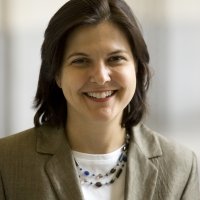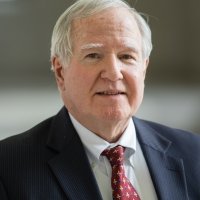Legislating International Organization: The US Congress, the IMF, and the World Bank
On October 25, 2011, the Program on America and the Global Economy (PAGE) hosted a book discussion on Legislating International Organization: the US Congress, IMF, and the World Bank, authored by Kathryn Lavelle, the Ellen and Dixon Long associate professor of World Affairs at Case Western Reserve University and a former Wilson Center Fellow. She drafted the manuscript for this book during her time as a fellow during the 2008-9 academic year. Lavelle, accompanied by moderator and PAGE Director Kent Hughes, delved into the relations between the World Bank and the IMF and Congress. Lavelle drew usefully on her own experience as an American Political Science Association Congressional Fellow with the House Committee on Financial Services [check to make sure name is right]. Her book seeks to answer the question, “How does the institution of Congress affect international organizations?” and in doing so, recognize that Congress as an international as well as domestic forum. Lavelle began by introducing the term “Congressional advocacy,” which she applies in her book when discussing the interactions of Congress with international organizations. She used “Congressional” because this process is unique to the United States and “advocacy” because it seeks to influence policy. The operations of activist networks in international relations and interest groups in American politics are clear, but the process that Congress uses to advocate for policy goals of international organizations is not.
Lavelle continued by breaking down the procedures used within Congress to influence international organizations. A Member of Congress can initiate the process by writing a letter to one of the international financial institutions, drafting a piece of legislation (or adding a measure to existing legislation), or hold a committee hearing. From there, the Treasury, World Bank, or IMF can respond to preempt further action. If the proposal is introduced as a bill or actually reported out of committee, groups may mobilize for or against, and the measure will ultimately pass or fail. Lavelle added that congressional influence is never in the form of affecting individual World Bank or IMF loans – Congress has instead shifts to the broader themes and general direction of the World Bank and IMF.
Lavelle also emphasized the periodic changes in both the Congress and the international institutions. She identified six major intervals, marked by external and internal change. The first period saw the creation of the Bank and Fund shortly after World War II. Second, in the postwar period, international lending was restored. Third, President Nixon brought an end to the Bretton-Woods system of fixed exchange rates and the dollar/gold standard in 1971. As a result, the IMF’s role shifted to overseeing a world of flexible exchange rates rather than dealing with limited payments imbalances. The fourth era was marked by debt crises starting with the 1982 near Mexican. The fifth “moral hazard” (reducing private risk through either private insurance or public support) era arose with the 1997 Asian financial crisis. The current era is one of IMF revival, following the 2008 financial crisis. According to Lavelle, each of these periods was marked with different dynamics in the World Bank and the IMF, yet also in Congress.
Ultimately, Lavelle noted, The IMF, the World Bank and multilateralism more generally needs domestic constituencies in American politics in order to flourish; the Bank and IMF need to do a better job explaining what they do and why they need to exist. Currently, according to Lavelle, the world does not have a consensus about the level of authority of international institutions in world economy. The role of private players’ (hedge funds, etc.) is also unclear. When asked about the varying attitudes about the World Bank, Lavelle explained that large corporations at one point in time testified in favor of the Bank because of its major project lending. In this era, however, multi-national corporations do not need the bank as many countries accept foreign direct investment without issue. NGOs have also not been unified in their stances towards the World Bank.
When asked about the future of domestic relationships with international organizations, Lavelle noted that the international financial system does not have to be controlled by the IMF and World Bank; bilateral relationships could become increasingly prominent. She noted that more regulation across borders is necessary: “You have to have some way that our retirement savings can be segmented off from the fluctuations in the value of global marks. Lavelle mentioned that another crisis would be needed to install further major changes to the current international system.
Lavelle remained optimistic regarding the American political system, as long-term financial problems are eventually solved. “What happens in the politics of money that doesn’t happen in other politics is that the effects take time,” she said. Financial systems adjust overnight while political solutions often demand debate and deliberation. International organizations need to be aware of the political currents in the countries that provide the bulk of their support and that are most clearly affected by Bank or Fund policies. While current popular support for the Bank and Fund are low, the immediate key to their solvency depends, in no small measure, on Congressional appropriations.
Drafted by: Rebecca Anderson
Kent Hughes, Director, Program on America and the Global Economy
Speakers

Ellen and Dixon Long Professor of World Affairs, Department of Political Science, Case Western Reserve University

Former Director, Program on America and the Global Economy, Woodrow Wilson Center